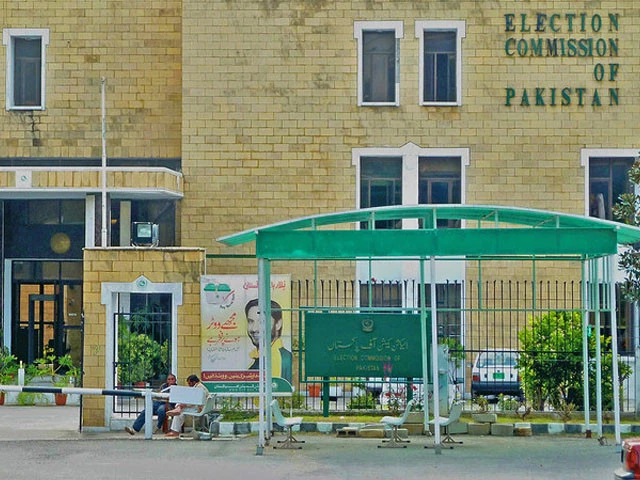Islamabad:
The Pakistan Electoral Commission (ECP) has issued disqualification notifications for three Pakistan Tehreek-E-Insaf (PTI) legislators, including Senator Ejaz Chaudhry, after its convictions by an anti-terrorist court.
In a notification issued on Monday, the ECP confirmed the disqualification of Chaudhry, Mna Muhammad Ahmad Chattha and the opposition leader of the Punjab Ahmad Khan Bhachar assembly. The three received 10 -year prison sentences under anti -terrorist charges.
Senator Chaudhry was convicted by an anti -terrorism court and is no longer eligible to remain a member of the Senate under article 63 (1) (h) of the Constitution, said the ECP. “The anti -terrorism court has declared the guilty Chaudhry and sentenced it to ten years,” the notification said.
Read more: Shah Mahmood Qureshi acquitted, Yasmin Rashid sentenced to 10 years
The ECP also disqualified MNA Chattha and MPA Bhacha, citing similar convictions. Chattha was chosen from NA-66 Wazirabad, while Bhachar represented PP-87 Mianwali in the Punjab assembly.
Last week, an anti -terrorism court (ATC) in Sargodha sentenced Bhachaha and other PTI workers to 10 years in prison each.
Meanwhile, ATC Lahore acquitted six PTI leaders, including Shah Mahmood Qureshi and Hamza Azeem, in relation to the disturbances of May 9, while sentenced to another 10, including Dr. Yasmin Rashid, 10 years in prison.
Also read: Imran involved in the conspiracy of May 9, LHC rules
The court issued its verdict in the case on inflammatory speeches and vandalism on the Sherpao bridge. The court, which had completed the final arguments of defense and prosecution, reserved its decision before announcing the ruling.
The verdict stated that the ATC acquitted of Qureshi, Azeem and four other defendants due to insufficient evidence. However, the court found another 10 guilty and issued 10 -year prison sentences for his role in the violence that followed the arrest of the founder of PTI Imran Khan.
May 9 disturbances
May 9 disturbances burst throughout the country after the arrest of former Prime Minister Imran Khan, after which PTI leaders and workers organized protests aimed at civil and military facilities, including Jinnah House and GHQ in Rawalpindi. The military condemned events as a “black day” and decided to try the protesters under the Army Law.
As a result of the riots, many PTI members were arrested and tried in military courts. In December, a military court condemned 25 people, including Imran Khan’s nephew, Hassan Khan Niazi, and then sentenced to 60 more.
In January, 19 convicts had their forgiven sentences after successful appeals of mercy, although PTI expressed dissatisfaction with the limited number of pardons. Initially, the military trials had stopped after a ruling of the Supreme Court, but resumed after the court instructions to finish pending cases and announce judgments for those involved in violent incidents.




